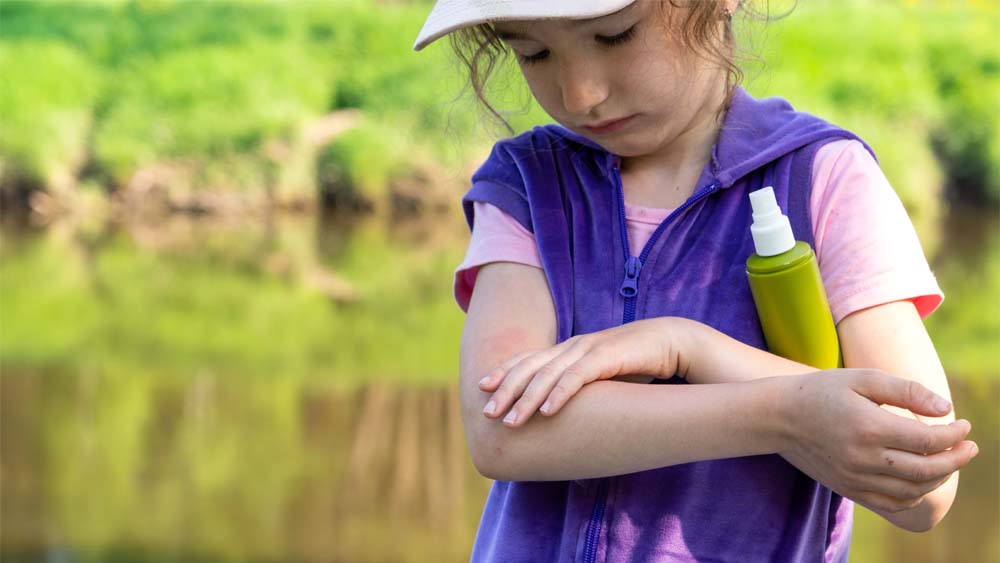For many parents, keeping children safe from pesky mosquito bites can feel like a never-ending task. The itching, discomfort, and potential for infections make managing and preventing bites essential, especially during warmer months when mosquitoes are more active. Fortunately, with the right precautions and treatments, you can help keep your child comfortable and safe from these common insect bites. Here’s an in-depth guide on preventing mosquito bites in children and treating them if they do happen.
Why Do Mosquitoes Bite?
While mosquitoes are not specifically more attracted to children, young kids often make easier targets. They may be less aware of bugs around them and are more likely to engage in outdoor play during peak mosquito times. Mosquitoes detect us through body heat, carbon dioxide, and body odour. This is why active children, who emit more heat and carbon dioxide, may appear to attract mosquitoes more than adults.
How to Prevent Mosquito Bites in Children
Prevention is the first step in managing mosquito bites. Here are key measures you can take:
- Avoid Mosquito Hotspots
- Stagnant Water: Mosquitoes breed in stagnant water. Regularly empty standing water around your home, such as in buckets, kiddie pools, or pet dishes.
- Common Attractants: Keep children away from areas with uncovered food, rubbish bins, and certain types of plants that may attract mosquitoes.
- Select Outdoor Times Carefully
- Dawn and Dusk: Mosquitoes are generally most active during early morning and late evening. Limiting your child’s outdoor playtime during these hours can help reduce the chances of bites.
- Keep Doors and Windows Closed
- Proper Screening: Ensure windows and doors are fitted with screens to keep mosquitoes out of the home. Fix any holes in screens to prevent unwanted pests from entering.
- Dress for Protection
- Cover Up: When mosquitoes are prevalent, dress your child in long sleeves, trousers, and socks to cover as much skin as possible. Light-coloured clothing can also help, as mosquitoes are more attracted to dark colours.
- Use Insect Repellent
- Selecting Repellents: For children over two months old, consider using insect repellent on exposed skin. Look for repellents with up to 30% DEET or 10% picaridin, as both are effective in warding off mosquitoes. Apply repellent sparingly on exposed areas, avoiding the face and hands.
- Consult a Paediatrician: For younger children or if you have concerns about chemicals, consult with your child’s paediatrician for the most appropriate repellent option.
- Treat Clothing with Permethrin
- Extra Protection: Spraying permethrin on clothing provides added protection, especially in mosquito-prone regions. Permethrin-treated clothing remains effective through several washes. Remember to spray only on clothing, not on skin.
- Consider Natural Options
- Essential Oils: For parents who prefer natural repellents, some essential oils like citronella, lavender, or eucalyptus have mosquito-repelling properties. However, always check with a paediatrician before applying any essential oil on young children, as some oils may cause skin reactions.
How to Treat Mosquito Bites in Children
Even with the best prevention, bites may still happen. Here’s how to manage them effectively:
- Minimise Swelling and Discomfort
- Act Quickly: If you spot a mosquito on your child, gently brush it away and apply a cold compress or ice wrapped in a cloth to the bite area to minimise swelling and ease discomfort.
- Soothe the Itch
- Topical Treatments: Apply calamine lotion, antihistamine cream, or hydrocortisone cream to relieve itching. Aloe vera gel can also provide soothing relief and help reduce inflammation.
- Oatmeal Bath: If your child has multiple bites, an oatmeal bath can be soothing for itchy skin.
- Discourage Scratching
- Trimmed Nails: Keep your child’s nails short to prevent them from scratching bites and breaking the skin, which can lead to infection.
- Teach Alternatives: Encourage your child to pat the bite area rather than scratch it, as scratching can make itching worse and damage the skin.
- Monitor for Infections or Illness
- Signs of Infection: Watch the bite site for signs of infection, such as redness, warmth, swelling, or pus. If your child has scratched a bite and it appears infected, seek advice from a paediatrician.
- Look Out for Symptoms of Mosquito-Borne Illness: In rare cases, mosquitoes can transmit viruses like West Nile or Zika. Symptoms to watch for include fever, headache, nausea, and vomiting. Contact a doctor if these symptoms arise, especially following a mosquito bite.
Proactive Mosquito Bite Prevention Tips
To further protect your child, consider these additional precautions:
- Use Mosquito Nets: If you live in a high-risk area, using mosquito nets over cots or beds can offer extra protection, particularly during nap times.
- Plant Mosquito-Repelling Plants: Certain plants, like citronella, lavender, and marigolds, are known to repel mosquitoes. Planting these around your garden or play areas can help keep mosquitoes at bay.
- Install Bug Zappers or Fans: Mosquitoes are weak fliers. Installing fans around outdoor play areas or using bug zappers can significantly reduce the mosquito population.

